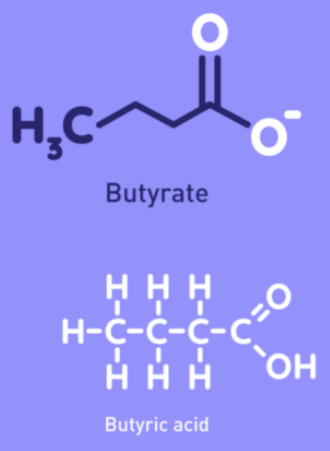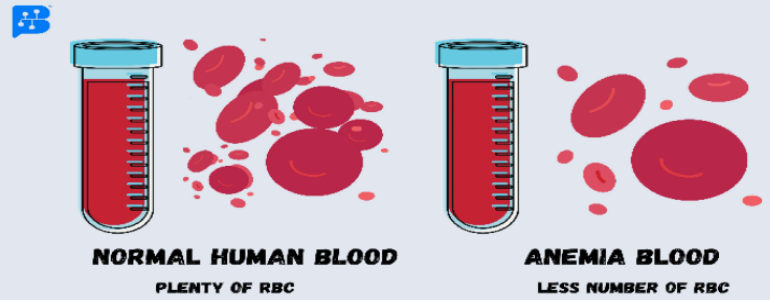- June 25, 2021
- Saloni
- Microbiome, Nutrition, Diet and Supplements
Gut Bugs: A Butyrate producing factory!
Trillions of microorganisms live within you (and even on you) and call your body home. There are bacteria, viruses, and fungi in many parts of your body, but the gut microbiome is the largest and most important. The gut microbiome is made up of all the microbes and genes found in the colon. In your intestine, there are approximately 1,000 different bacterial species. So, your body is not solely yours!
Human health is strongly influenced by gut microbes. The good bacteria in our gut perform vital functions such as producing metabolites like short-chain fatty acids, vitamins and amino acids. These have a variety of health benefits, ranging from promoting a healthy immune system to maintaining gut lining integrity. One of the important aspects of the gut microbiota is “fermentation”. Dietary fibres that cannot be broken by the body are “fermented” by the gut resident bacteria producing a variety of metabolites including butyrate, an organic compound that belongs to the group of “short-chain fatty acids”. This metabolite has many important functions within the human body, particularly for digestive health, as well as supporting brain health and protecting against disease. These health-promoting molecules are an important source of energy for the body, accounting for anywhere from 5% to 15% of a person's daily caloric needs.

Structure of butyrate and butyrate acid
Butyrate, the primary fuel for the cells that line the gut also referred to as "colonocytes," fulfils 90% of the energy requirements of those cells. Another important role of butyrate is that it is a Histone deacetylase inhibitor or "HDAC inhibitor,” thereby promoting anticancer activity. Furthermore, by lowering the gut's inflammatory capacity, it creates an environment in which the microbiome can thrive without triggering an acute immune response. This short-chain fatty acid also functions as an antioxidant and aids in gut health. It boosts the production of mucin, a gel-like substance that coats the inside of the gut, and promotes the growth of villi, microscopic finger-like extrusions that line the intestines. These mechanisms explain how it contributes to the integrity of the gut wall, also known as the "epithelial defence barrier," which prevents opportunistic pathogens, toxins and other harmful substances from entering the bloodstream.
So, now that you're aware of the health benefits that butyrate can provide, we're sure you're eager to learn how to boost butyrate levels in the gut. You do not need to eat foods high in butyrate; instead, you should eat foods that feed your gut bacteria. Because butyrate is produced when your gut microbes convert the dietary fibre (also called prebiotic) that your body cannot digest into those incredibly beneficial compounds.
A balanced diet with decent amounts of carb, Low-fat and protein can enhance the activity of the gut bacteria. Thereby, increasing butyrate level. Prebiotic dietary fibers are the best food source for our microbiome, which is found in plant based food like fruits, vegetables and pulses. Although many fad diets claim to have some benefits, they can also be harmful to your gut microbiome and its ability to produce butyrate. Hence, think twice before following any strict diet because our microbiome is variable and requires a balanced diet.

Butyrate is produced by gut bacteria from prebiotic fibers in plant foods
So, it is to be remembered that a good, wholesome and a balanced diet can help us in feeding our microbes but also improve our overall well being in many folds. Whereas, a rigid and a wrong diet can have the potential to affect us in many possible ways. So, choose wisely what goes inside your body!
References:
-
Guilloteau P, Martin L, Eeckhaut V, Ducatelle R, Zabielski R, Van Immerseel F. From the gut to the peripheral tissues: the multiple effects of butyrate. Nutr Res Rev. 2010;23:366–384. [PubMed]
-
Rabbani GH, Teka T, Zaman B, Majid N, Khatun M, Fuchs GJ. Clinical studies in persistent diarrhea: dietary management with green banana or pectin in Bangladeshi children. Gastroenterology. 2001;121:554–560. [PubMed]
-
Chang, P. V., Hao, L., Offermanns, S., and Medzhitov, R. (2014). The microbial metabolite butyrate regulates intestinal macrophage function via histone deacetylase inhibition. Proc. Natl. Acad. Sci. U.S.A. 111, 2247–2252. doi: 10.1073/pnas.1322269111
-
Cani, P, D. Human gut microbiome: hopes, threats and promises, 2018









